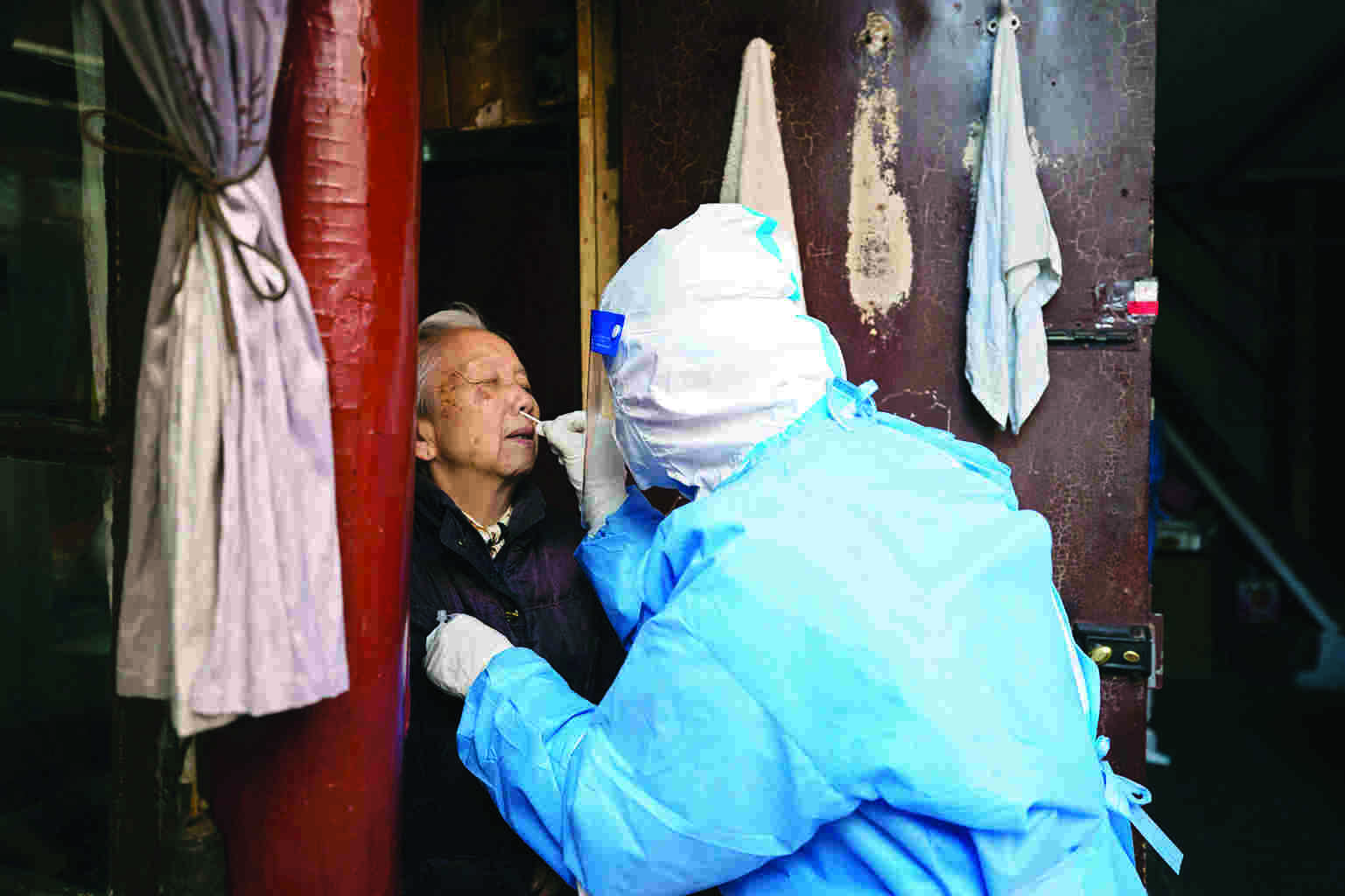Shanghai hosp pays the price for China's Covid-19 response

Beijing: A series of deaths at a hospital for elderly patients in Shanghai is underscoring the dangerous consequences of China's stubborn pursuit of a zero-COVID approach amid an escalating outbreak in the city of 26 million people.
Multiple patients have died at the Shanghai Donghai Elderly Care hospital, relatives of patients told The Associated Press. They say their loved ones weren't properly cared for after caretakers who came into contact with the virus were taken away to be quarantined, in adherence to the strict pandemic regulations, depleting the hospital of staff.
Family members have taken to social media to plea for help and answers and are demanding to see surveillance video from inside the facility after getting little to no information from the hospital.
The conditions and deaths at the hospital are a sharp rebuke against China's strategy of sticking to a zero-COVID policy as it deals with the outbreak in Shanghai in which most of the infected people don't have symptoms.
With a focus on forcing positive cases and close contacts into designated collective quarantine facilities, the costs of zero-COVID may be outweighing the risk of getting sick.
Shen Peiming, 71, was one such casualty. She died Sunday morning at the hospital, without any relatives by her side. A family member said they have been calling the hospital non-stop to find out the circumstances of Shen's death, but have not gotten a clear answer.
"How many times have there been lockdowns since 2020? They still don't have experience managing this?" the family member said. All they know is her doctor and nurses had not been there to care for Shen, who was partially paralyzed after a stroke. Her last nursing assistant had been quarantined for being a close contact of a positive case, the relative said, speaking on condition of anonymity out of fear of retribution.
An unfamiliar worker called to inform them of her death. Later, the hospital said it was due to a chest infection. The hospital had a COVID-19 outbreak, the family heard from orderlies, but Shen had tested negative as of last week. Shanghai authorities have reported no deaths from this outbreak, but questions have been raised about the reliability of the data.
A city health official, speaking on condition of anonymity because of the sensitivity of the topic, said that the criteria for confirming cases and deaths are very strict and susceptible to political meddling.
It is unclear how many patients have died at the hospital, and whether any died of COVID-19. Families say they are talking with other families whose relatives have also died.
An article from Chinese news outlet Caixin describing the deaths and infections was taken down shortly after it was published, apparently targeted by censors.
Calls to the main office of Donghai Elderly Care went unanswered. The Shanghai government did not respond to a faxed request for comment.
Most experts agree that China's zero-COVID approach was highly successful in keeping deaths to a minimum when there were limited drugs or vaccines. But now that shots are widely available in China, and with the advent of the omicron variant, many say the government should abandon the policy and focus medical resources on the elderly and vulnerable instead.
Instead, Shanghai has locked down its 26 million people and carried out repeated mass testing to tackle an outbreak driven by the highly contagious omicron BA.2 variant. On Saturday, the city reported more than 23,000 new local cases, of which only 1,015 had symptoms.
"If you're asymptomatic, what's going to hurt you?" said Ray Yip, the founding director of the U.S. Centers for Disease Control office in China,
who maintains close ties with Chinese health officials. "The only people who get sick are those with diabetes, obesity, chronic disease, old people. Protect those people. You can protect them."



